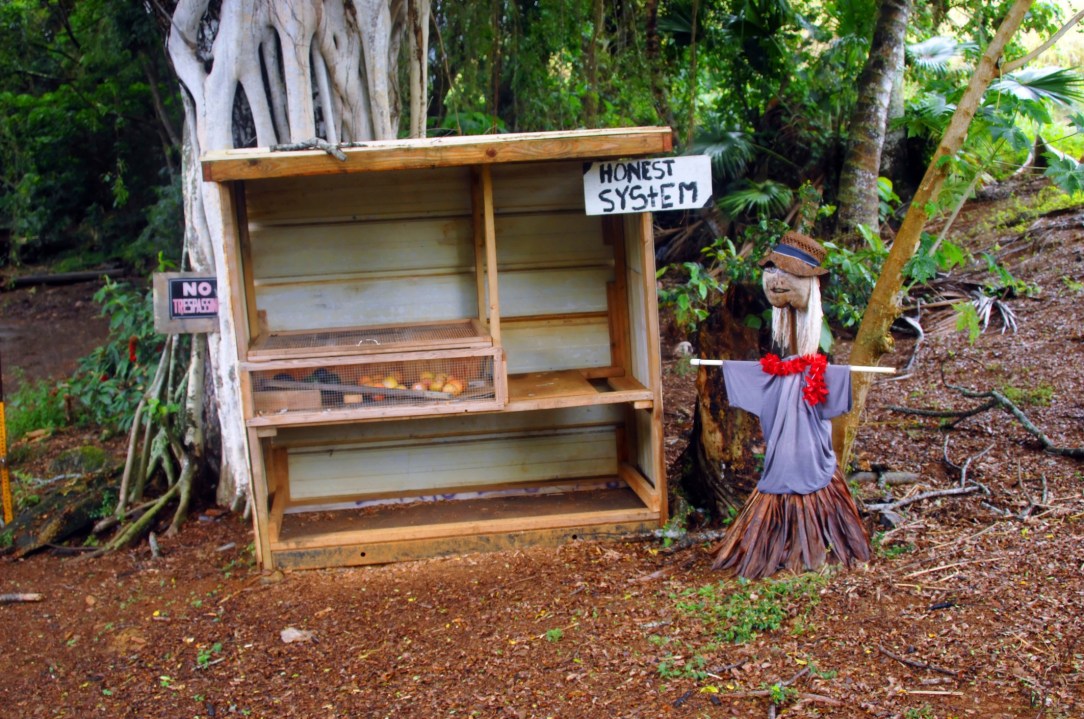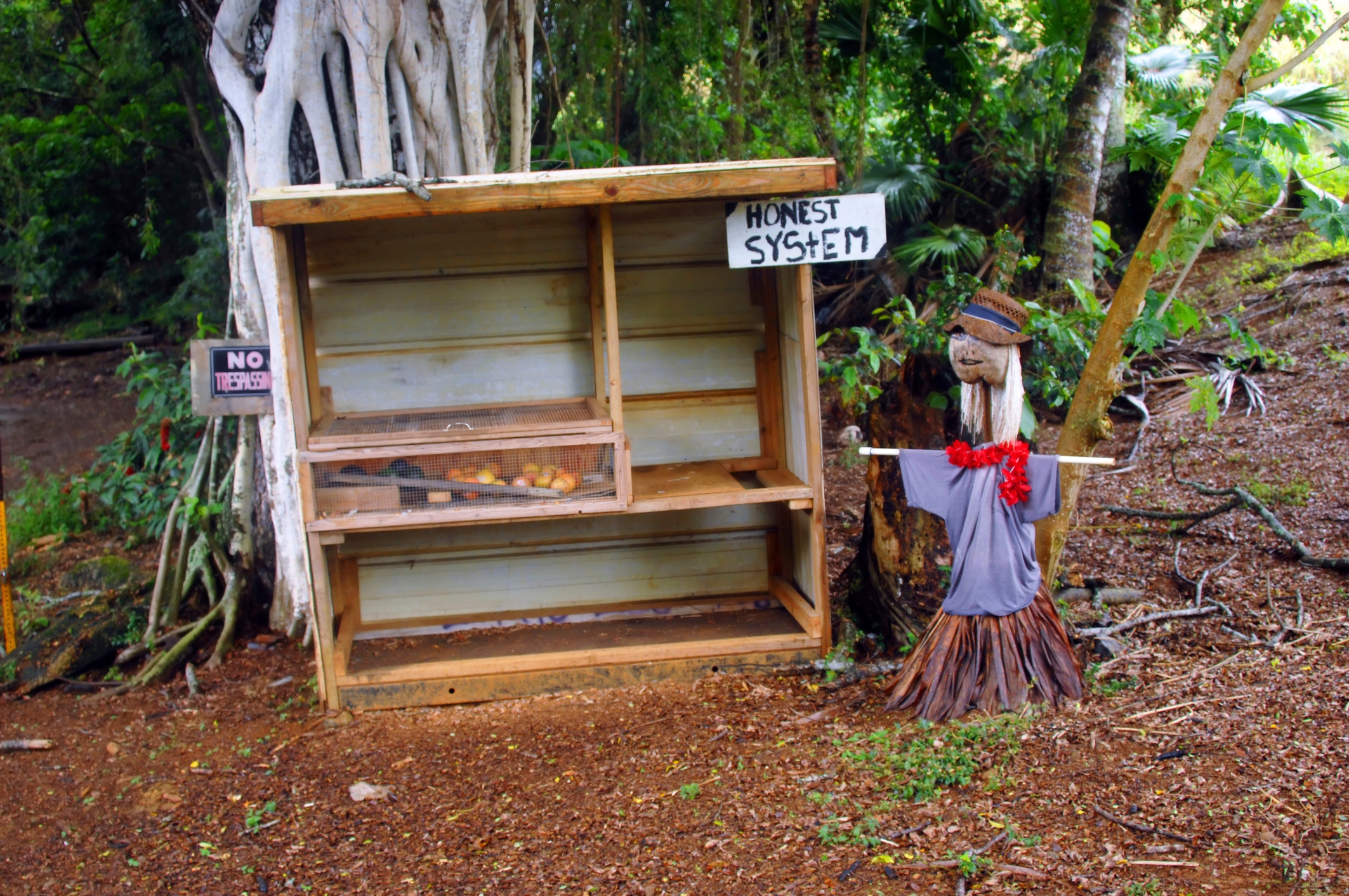Three miles up the road is a glass-fronted cupboard in a hedge that often contains free-range eggs for sale at £1.20 a half-dozen. It’s a sales point relying on and trusting in other people’s honesty. You slide back the glass, pleased to be living in a still-civilised part of the world, drop your coins in the tin and help yourself. The eggs are flecked with dirt and crap and bits of straw, and one of these boiled for three minutes and eaten with a slice of bread and butter is what I’d ask for if I ever find myself on Death Row on the morning of my execution.
Recently I’ve discovered another honesty stall consisting of a rickety table outside a thatched cottage in an unfrequented lane. This one offers garden vegetables, and I’ve become a regular customer here, too. The egg cabinet I pass most days in the car. The vegetable table, however, is not on a route to anywhere, so I’ve incorporated it into a five-mile circular walk as a highlight, and I visit there once or twice a week. I’m leading a fairly quiet life at the moment (if you hadn’t already guessed) and I can honestly say that the contents of this unattended table has lately become one of my chief sources of interest and entertainment.
The table is low, rickety, lopsided. The green oilcloth cover is faded by the sun. Invariably dotted about on it are little heaps of wilting garden produce. There might be four knobbly potatoes. Or three thin leeks held together with an elastic band. Or one tomato. Sometimes a small lettuce. Occasionally a posy of flowers. You put your coins in a marmalade jar.
The produce for sale here looks poor stuff compared with the prodigious decontaminated uniformities one sees in the supermarket vegetable aisle. I felt sorry for it at first, and sorry, too, for whoever was trying to sell it. Yet those first leeks I took home — limp, undersized things at three for 50 pence — were the most delicious and leekiest tasting leeks I’d tasted in years. As for the spuds, well, I’d almost forgotten what real ones tasted like until I carried four knobbly earth-encrusted ones home wrapped in newspaper and had them for tea.
The other remarkable thing about this honesty stall, apart from the disparity between the produce’s lacklustre appearance and wonderful taste, is that there is always a thought for the day, handwritten on a page ripped from an old diary, and prevented by a smooth beach pebble from blowing away. Food for the mind, presumably, to complement that for the body. For a deserted table set outside a silent cottage in a deep country lane, these thoughts for the day seem slightly mad, even sinister.
I’ve had: ‘The joys of evil flow away like a torrent.’ And: ‘A single word often betrays a great design.’ Also: ‘All is quiet, the army, the wind, and Neptune.’
These thoughts or warnings or quotations lead me to speculate on the nature and personality of the gardener. They suggested to my susceptible imagination that the gardener was perhaps a healer or a wise woman, or at the very least a cryptic old cottager steeped in folklore and superstition. Those thin leeks, for example, had of course been set when the moon was waning; the potatoes sown at the first sighting of a yellow wagtail in spring and on a rising tide; the visiting bees honoured as holy and told everything. But on every one of my visits to the table the old cottage was silent, and never a soul about, not even a dog or a cat or a hesitant hen, and never any money in the jar to indicate other transactions. But eternally there was the undersized, unenticing produce; always the new thought for the day handwritten on the torn diary page.
And then at last I came sweating around the bend in the lane one day, and when in sight of the table and the cottage I heard voices: raised, angry voices. I felt in my jeans for my coins and went to the table. While I studied my choice of vegetables, two men of late middle age faced one another in the garden, furious with one another. Their desire to represent their feelings to one another seemed to run deeper than the feelings themselves. I think they were in love.
‘Graham. We. Are. Finished,’ said one, finally. He made a petulant little mime with thumb and forefinger of an irrevocable fastening of a short invisible zip that floated in the air between their faces. Then he turned and stalked away. I dropped 20 pence in the jar, picked up an onion and cocked my head to read the thought for the day. It was a question. It said: ‘Is faith without action a sincere faith?’








Comments